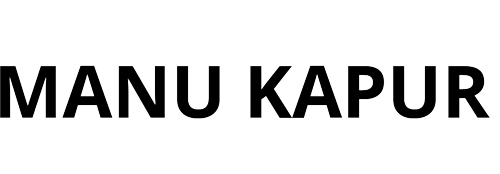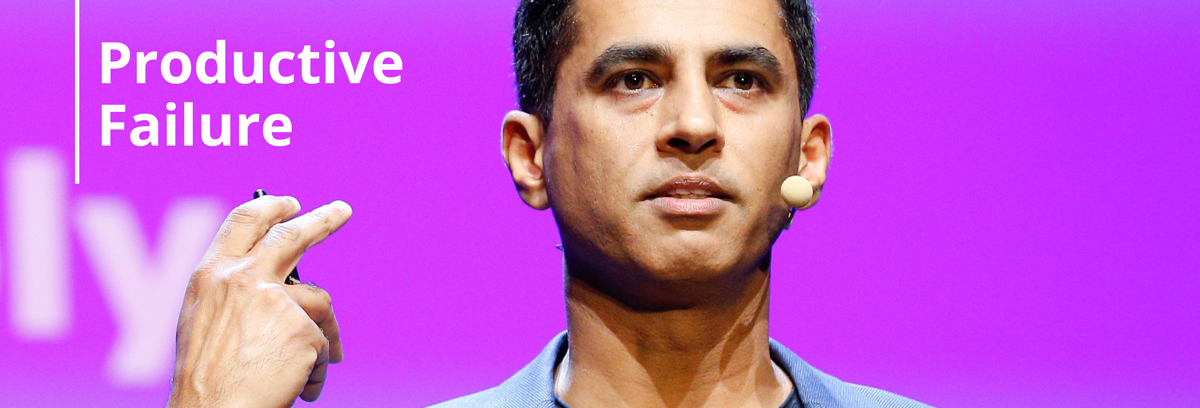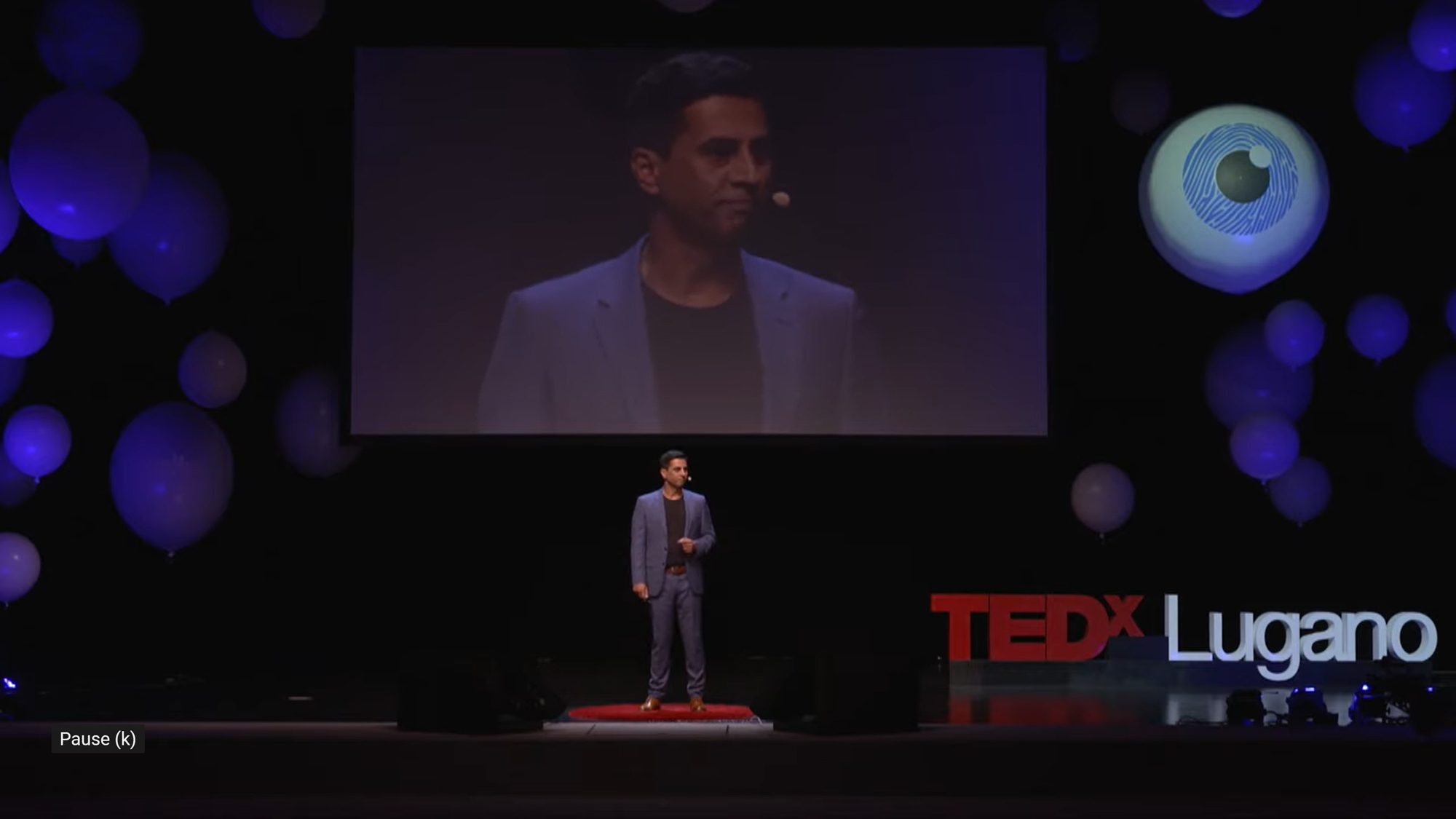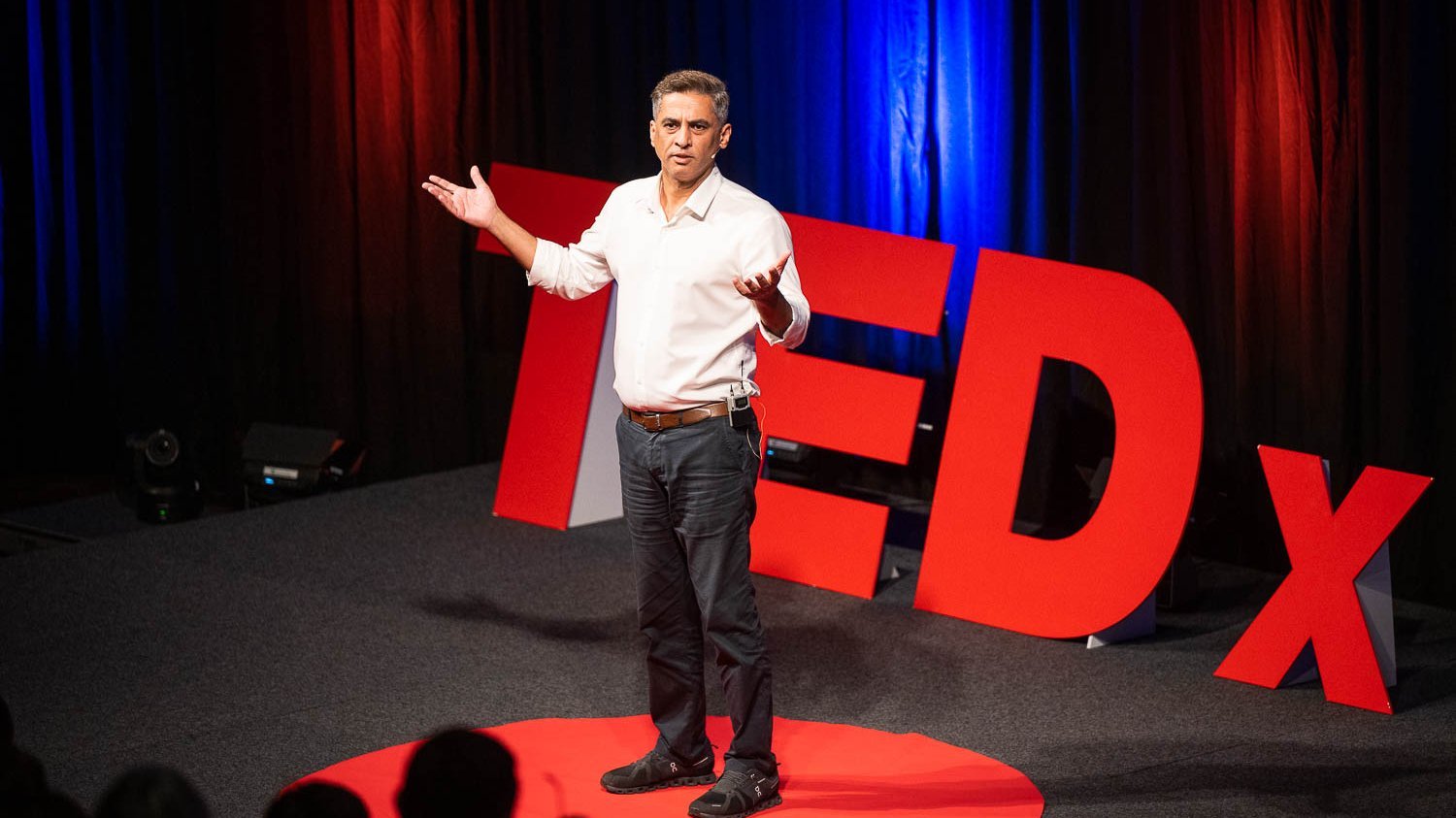Manu is currently the Director of the Singapore-ETH Center, and Professor for Learning Sciences and Higher Education at ETH Zurich, Switzerland, where he also directs The Future Learning Initiative (FLI). Manu is also the Founding Chair of the ETH Zurich – EPFL Joint Doctoral Program in the Learning Sciences.
Prior to this, Manu was a Professor of Psychological Studies at the Education University of Hong Kong. Manu also worked at the National Institute of Education (NIE/NTU) of Singapore as the Head of the Curriculum, Teaching and Learning Department, as well as the Head of the Learning Sciences Lab (LSL).
A mechanical engineer by bachelors training, Manu has always been passionate about mathematics. He taught college mathematics for four years, during which he was also the deputy leader for Singapore’s team to the 43rd International Mathematical Olympiad in Glasgow. It was then that his intrigue for mathematical cognition took root, which led him to pursue a doctoral degree in the science of learning (specialization in instructional technology) at Columbia University in New York. Manu holds a double Masters: a Master of Science in Applied Statistics from Columbia University in New York, and a Master of Education from the NIE, Singapore.
As a learning scientist, Manu makes a commitment not only to advancing understanding of human learning, but doing so in ways that make an impact in the actual ecologies of learning. Drawing on his engineering mindset for design, Manu conceptualized and developed the theory of Productive Failure to design for and bootstrap failure for learning mathematics better. He has done extensive work in real-field ecologies of STEM classrooms to transform teaching and learning using his theory of productive failure across a range of schools and universities in around the world.
His research on Productive Failure has been taken up by the Singapore’s Ministry of Education for wide-scale re-design and implementation of its pre-university mathematics (statistics) curriculum and pedagogy. This demonstrated Manu’s ability to build and sustain a high-quality, interdisciplinary scientific research program and work with multiple stakeholders (politicians, policy makers, funding bodies, schools) to impact not only theory but also policy and practice at the national scale.
Manu’s research has attracted high profile media interest (e.g., TIME Magazine, NZZ, WEF, THE AUSTRALIAN, THE STRAITS TIMES, THE TIMES OF INDIA, The CONVERSATION, NZZ, etc.) and approximately US$13m in research funding. Early in his academic career, Manu also directed a $50m interactive and digital media R&D program at the Ministry of Education of Singapore to jumpstart interdisciplinary research on interactive and digital media in education in Singapore.
Manu has been awarded visiting professorships at top universities in Europe, Australia and Japan, and invited to major international government and advisory boards (e.g., Singapore Ministry of Education, Program for International Student Assessment run by the OECD on Assessment of 21st Century Skills).
Manu is a prolific keynote speaker at high-profile conferences and events around the world (e.g., The ROYAL SOCIETY UK, USA, Canada, Europe, Australia, Japan, South Korea, Singapore, and India). He has also served as an associate editor for two of the leading journals, and has published in the most prestigious journals in the field of the learning and the cognitive sciences.
Education
| 2006 | Doctor of Education (Ed.D.) in Instructional Technology & Media. Teachers College, Columbia University, New York, USA |
| 2005 | Master of Science (M.S.) in Applied Statistics. Teachers College, Columbia University, New York, USA |
| 2003 | Master of Education (M.Ed.) – GOLD MEDAL. National Institute of Education, Nanyang Technological University, Singapore |
| 1999 | Post-Graduate Diploma in Education (Secondary) – DISTINCTION. National Institute of Education, Nanyang Technological University, Singapore |
| 1997 | Bachelor of Mechanical Engineering (Honors). National University of Singapore |
Professional and Leadership Experience
| 2019 – | Member, DGESS Executive Board |
| 2019 – | Member, ETH Zurich KITE Award Commission |
| 2018 – | Member, ETH Zurich Commission for Prizes and Awards |
| 2017 – | Professor, Learning Sciences and Higher Education, ETH Zurich |
| 2016 | Professor, Psychological Studies, Hong Kong Institute of Education |
| 2012 – 2015 | Head, Learning Sciences Laboratory (LSL), NIE (NTU), Singapore. Department Head, Curriculum, Teaching and Learning (CTL), NIE (NTU), Singapore. |
| 2011 – 2015 | Associate Professor, Curriculum, Teaching & Learning, NIE, Singapore |
| 2007 – 2008 | Assistant Director, Interactive & Digital Media (IDM) R&D, Ministry of Education Singapore. I was responsible for a $50m funding program, and orchestrated the jump-starting of IDM research in all the universities and polytechnics in Singapore. |
| 2006 – 2011 | Assistant Professor, Curriculum, Teaching & Learning, NIE, Singapore |
| 2002 – 2003 | Vice Principal, National Junior College, Singapore. One of Singapore’s top colleges (grades 11 and 12) with more than 2000 students and 200 faculty and staff. |
| 2002 | Deputy Leader, Singapore’s team to the 43rd International Mathematics Olympiad, Glasgow, UK. |
Visiting Research Professorships
| 2021 | Ngee Ann Kongsi Distinguished Visiting Professorship by the National University of Singapore-NUS’ most prestigious award for visiting faculty. |
| 2015-2016 | Visiting research professor at the University of Sydney, Australia |
| 2015 (May) | Visiting professor at the Hong Kong Institute of Education |
| 2015 (Feb) | Visiting research professor at the University of Bochum, Germany |
| 2013 (Apr) | Visiting research professor at the University of Tokyo, Japan |
| 2010-2012 | Visiting research professor at the University of Sydney, Australia |
| 2009 (Nov) | Visiting research professor at the Institute of Psychology, University of Freiburg, Germany |
International Advisory Boards/Panels
| 2016- | International advisory board member on the project Handbook of Research on Educational Communications and Technology,Association for Educational Communications and Technology (AECT). |
| 2011-2014 | International advisory board member on the project “Blended synchronicity: Uniting on-campus and distributed learners through media-rich real-time collaboration tools”. Funded by Australian Learning and Teaching Council (ALTC); lead institutions: Macquarie University, The University of Melbourne, and Charles Sturt University, Australia. |
| 2011-2013 | International expert panel member of “Learning Technologies and the Learning Sciences” network of the University of Sydney Research Networks Scheme, Australia. |
| 2011-2013 | International expert panel member on Pearson’s bid for PISA 2015 items on Assessments for 21st Century Skills. |
| 2009-2011 | International expert panel member on Assessment for 21st Century Skills project: An international, multi-agency, public-private sector project co-funded by Microsoft, CISCO, Intel, as well as the six co-founder countries, namely, Singapore, USA, UK, Finland, Australia, and Portugal. |
Service
International Level
- Associate Editor of Instructional Science journal (impact factor = 2.00)
- Associate Editor of the Journal of the Learning Sciences (impact factor = 3.26)
- Co-editor of the Proceedings of the CSCL conference 2012
- Member of the Education Committee of the International Society of the Learning Sciences
- Doctoral Consortium Mentor 2014, ICLS Conference
- Early Career Consortium Mentor 2015, CSCL Conference
- Early Career Workshop Co-Chair, 2016, ICLS Conference
Reviewer for
- The Journal of the Learning Sciences (JLS)
- The International Journal of Computer-supported Collaborative Learning (ijCSCL)
- Learning and Instruction
- Cognitive Science
- Educational Psychology Review
- Instructional Science
- Computers and Education
- Journal of Computer Assisted Learning
- International Conference of the Learning Sciences, CSCL, American Educational Research Association Conference, Cognitive Science, etc.
Memberships
- International Society of the Learning Sciences (ISLS);
- ISLS Education Committee Member
- American Educational Research Association (AERA)
- Association of Mathematics Educators of Singapore
- Cognitive Science Society
- Asia Pacific Society for Computers in Education (APSCE)








